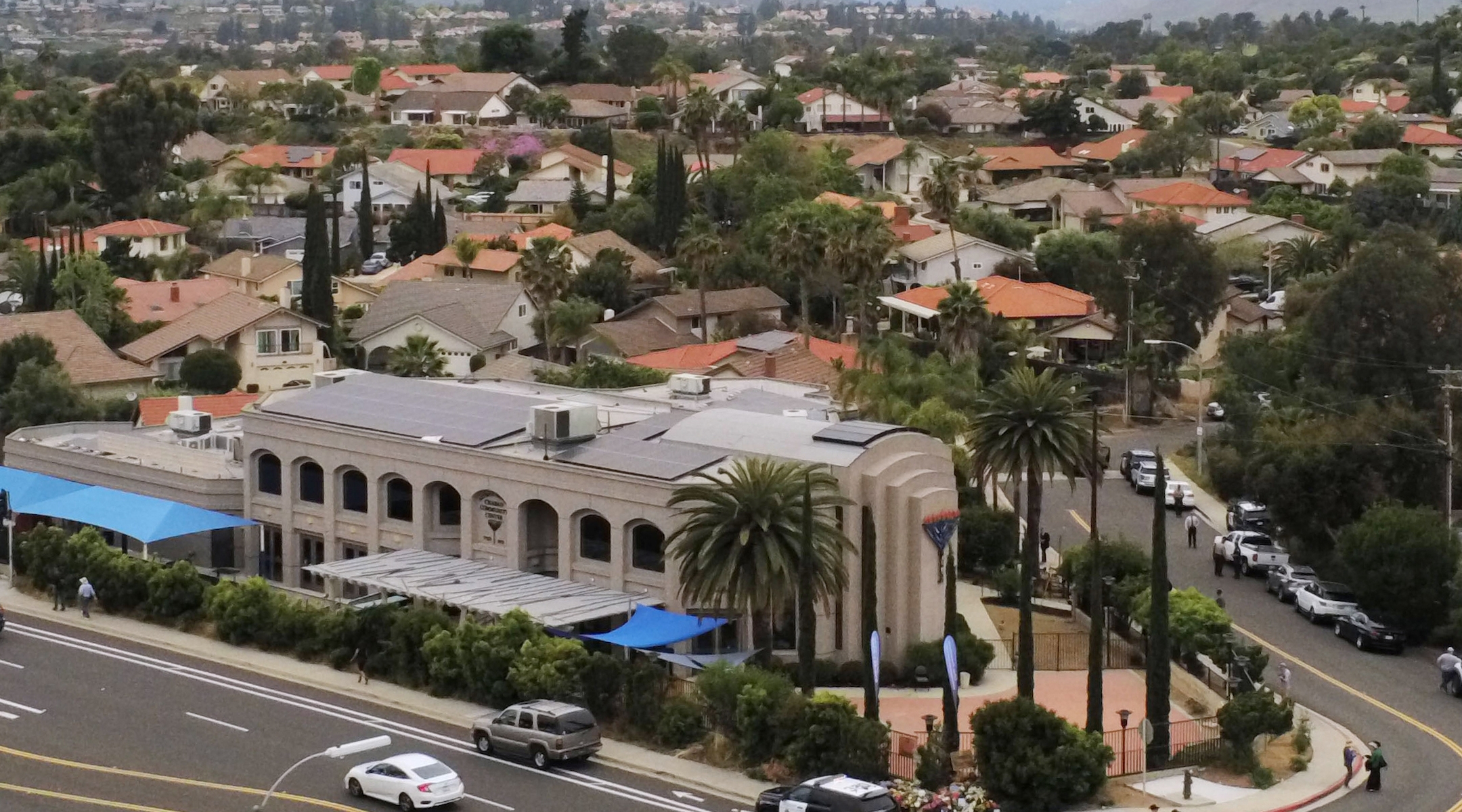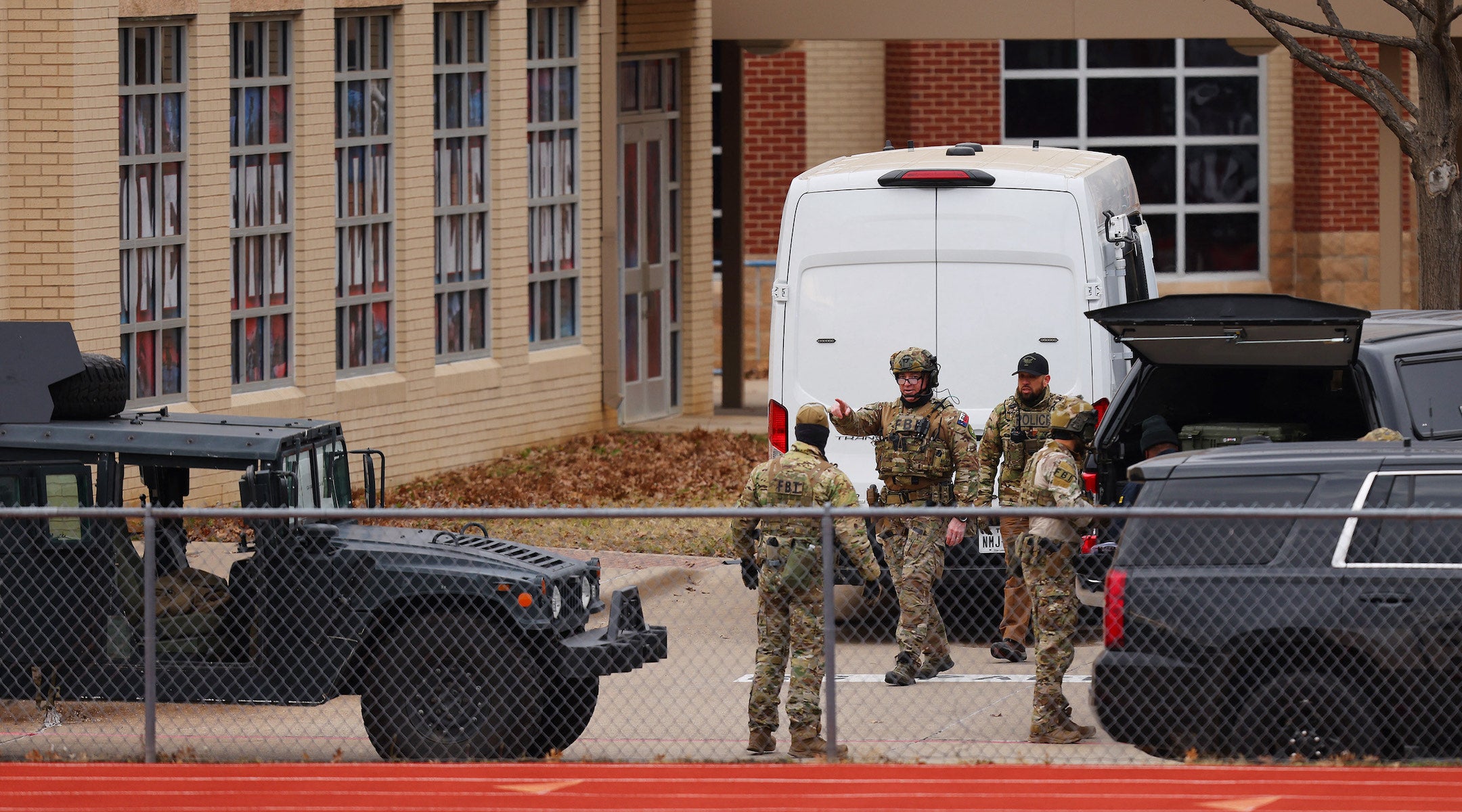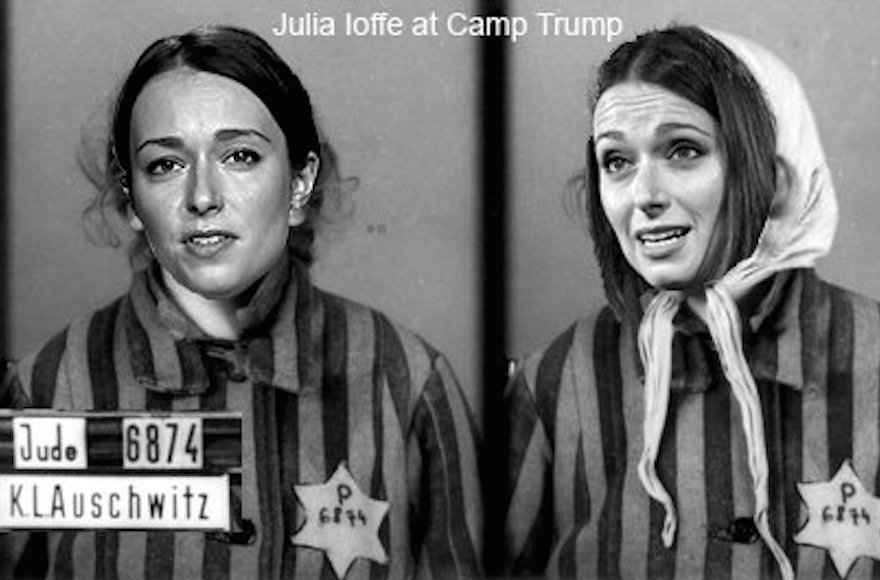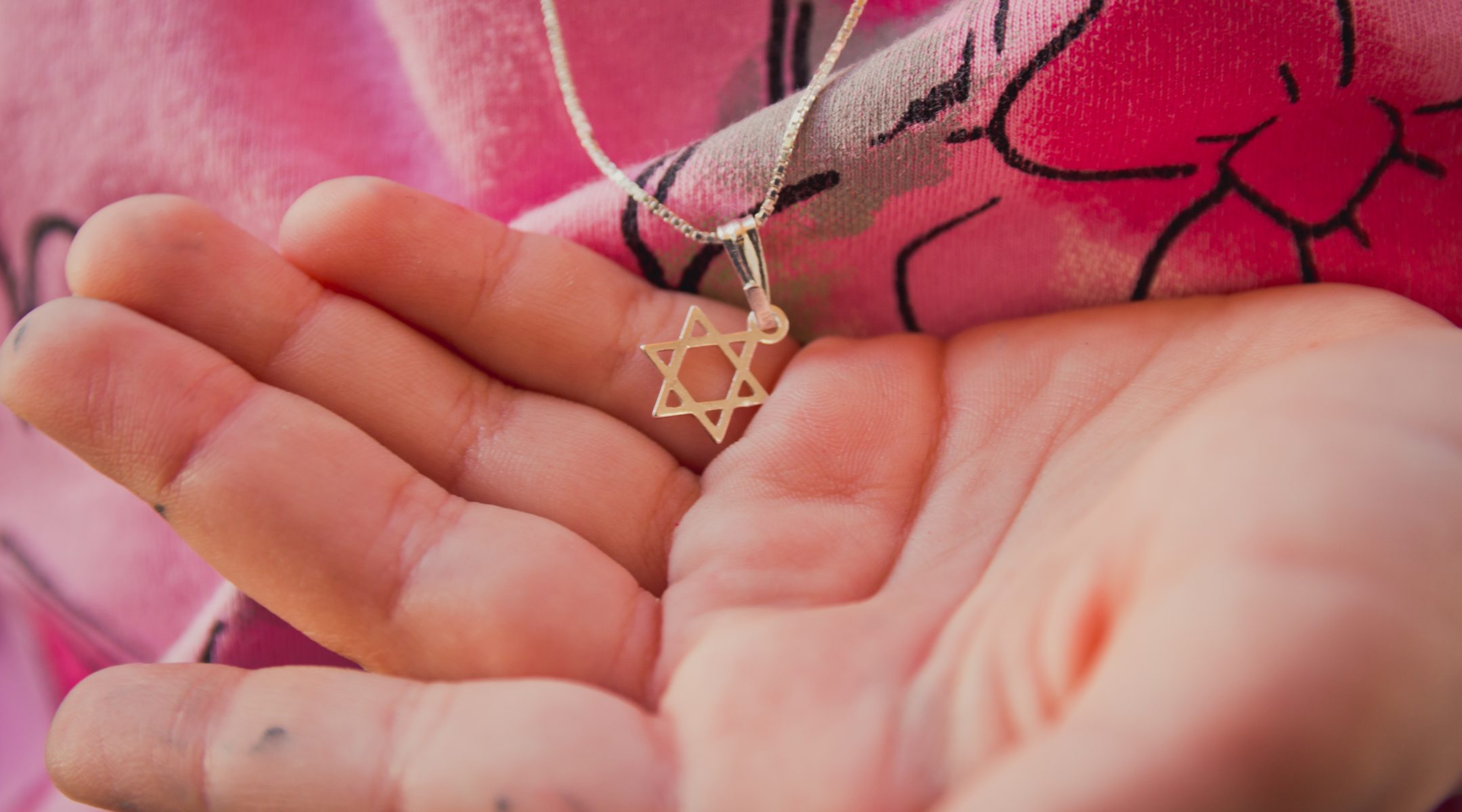(JTA) — The incidents, data and experiences that have many American Jews on edge are getting a prime-time treatment this weekend as CNN premieres an hourlong special about antisemitism.
“Rising Hate: Antisemitism in America,” is hosted by Dana Bash, the CNN anchor and political correspondent who is herself Jewish. On Friday, Bash, whose first husband was the son of a Conservative rabbi and who briefly was a trustee of the nonprofit Jewish Women’s International, published an essay about her 10-year-old son’s request for a Jewish star necklace and the concerns it awakened in her.
“We got the Jewish star and a chain to go with it,” Bash wrote. “What I did not say – what I was ashamed to even admit to myself – was that my young son showing the world that he is Jewish made me nervous.”
Bash’s reporting for the special came in the months afterwards. The result is a tour through some of the low points of recent American Jewish history — as well as an analysis of why watchdog groups and law enforcement agencies are reporting record numbers of antisemitic incidents.
“Though it has always existed, this ancient hatred has grown in recent years, moving from fringe groups and obscure chatrooms to the mainstream, both online and on the streets of communities across the country,” CNN said in a press release about the special, noting that it comes at a time “with white nationalists radicalized online perpetrating deadly shootings, and insidious conspiracy theories and tropes normalized by political leaders.”
The Jewish Telegraphic Agency reviewed a rough cut of the special. Here’s some background about the people, places and ideas featured in it.
Poway, California, the site of a deadly 2019 synagogue shooting: Bash filmed one segment in Poway, where an avowed white supremacist attacked a Chabad synagogue in April 2019, killing one worshipper and wounding three others. The shooter, who was sentenced to life in prison last year, had been radicalized online and has become a hero to others in that extremist community. CNN says its cameras were the first allowed inside since the shooting. One possible reason for the wariness: The rabbi at the time of the shooting went to prison for tax fraud over a scheme he ran to benefit the synagogue; now, the rabbi is his son, who has refused Chabad’s requests for him to step aside. Bash sat down with him but did not discuss the synagogue’s legal woes, or his own.

An aerial view of the Chabad of Poway synagogue in Poway, Calif. on April 28, 2019, a day after a deadly shooting there. (Sandy Huffaker/AFP via Getty Images)
Colleyville, Texas, home to a 2022 synagogue hostage crisis: For one day in January, the nation’s eyes were trained on Congregation Beth Israel, a Reform synagogue in Colleyville, where a rabbi and his congregants were being held hostage — in a harrowing incident that was initially livestreamed and fortunately ended without any of the hostages being harmed. The incident made a hero of Rabbi Charlie Cytron-Walker, who said he used security training he had received to throw a chair at the hostage-taker, allowing him and two others to escape. (The chair is now on display at the National Museum of American Jewish History in Philadelphia.) The assailant, who died in the raid, was a Muslim man from England who had come to the United States just weeks before the attack; he said he was seeking the release of a woman convicted of plotting to kill American service members who is a cause celebre for an international network of activists.

SWAT team members deploy near the Congregation Beth Israel Synagogue in Colleyville, Texas, Jan. 15, 2022. (Andy Jacobsohn/AFP via Getty Images)
A command center to monitor antisemitism: Bash filmed one segment inside “a command center dedicated to tracking threats against Jews by monitoring the deepest corners of the dark web.” There’s only one place like it — in Chicago, where the Security Community Network, a Jewish security nonprofit, launched a centralized site last year. The site, a room featuring a 16-foot TV screen, was staffed by roughly 10 people on a daily basis at launch and can be operational 24 hours a day, as it was over the High Holidays last fall.
Donald Trump and his base: Bash speaks with Julia Ioffe, the Jewish journalist who was targeted with antisemitic messages during the 2016 presidential election because of her reporting about Trump, then the Republican candidate. At the time, Ioffe, whose family emigrated from the Soviet Union 26 years ago, said the abuse she faced reminded her of the antisemitism her family fled in Russia. Her experience was an early indicator of the intensity with which Trump supporters have been seen to mix antisemitic rhetoric into their speech — a dynamic that has only deepened as his base has grown more committed. Antisemitic imagery was present among rioters during the Jan. 6 Capitol insurrection, and just this week, Trump supporters have targeted a Jewish judge in Florida and U.S. Attorney General Merrick Garland, who is also Jewish, for authorizing a raid on Trump’s Mar-a-Lago estate.

Jewish journalist Julia Ioffe received neo-Nazi death threats from Donald Trump supporters after writing a profile of Melania Trump in GQ. (Screenshot from Twitter)
A lawsuit alleging discrimination against Zionist students: While CNN didn’t mention college campuses in its promotional materials for the special, a segment deals with antisemitism there — which students and advocates say can be intense. Last year, Hillel and the Anti-Defamation League found that a third of Jewish college students had experienced antisemitism, often related to their actual or perceived support for Israel. The special’s segment focuses on an incident at SUNY New Paltz, where two Jewish students say they were excluded from a group for survivors of sexual assault because of their support for Israel.
An organization that is focused on fighting legal battles on behalf of Jews at colleges and universities, the Louis D. Brandeis Center for Human Rights Under Law, this week filed a federal civil rights complaint with the U.S. Department of Education on behalf of the students; the group had previously raised alarm about the exclusion. Also party to the complaint is Jewish on Campus, an Instagram account that launched in 2020 to let students share anonymous stories about antisemitism at their schools. The head of the ADL, a leading antisemitism watchdog group, recently equated anti-Zionism with antisemitism and said it can be just as dangerous, beliefs that are shared by many Jews and disputed by many others.
Deborah Lipstadt and her Jewish star necklace: Lipstadt, the Holocaust studies scholar who was confirmed in March as the United States’ global antisemitism monitor, made an impression on Bash as soon as they sat down together — when Bash noticed Lipstadt’s necklace. “When we got to the part of the interview when I asked for some solutions to curb hate against Jews, Lipstadt – a world-renowned expert on antisemitism – said that she started wearing her Jewish star more frequently as antisemitic attacks started to rise,” Bash wrote in her essay about her son’s request for a necklace of his own. CNN promises that the special will offer solutions, not just a romp through age-old problems, and chief among them is an encouragement to display Jewish pride — something of a catchphrase to many, including a new generation of Jewish social media warriors.
JTA has documented Jewish history in real-time for over a century. Keep our journalism strong by joining us in supporting independent, award-winning reporting.






